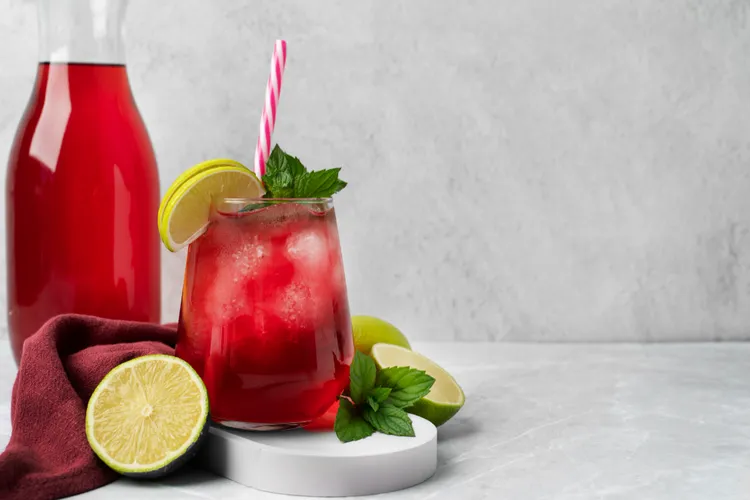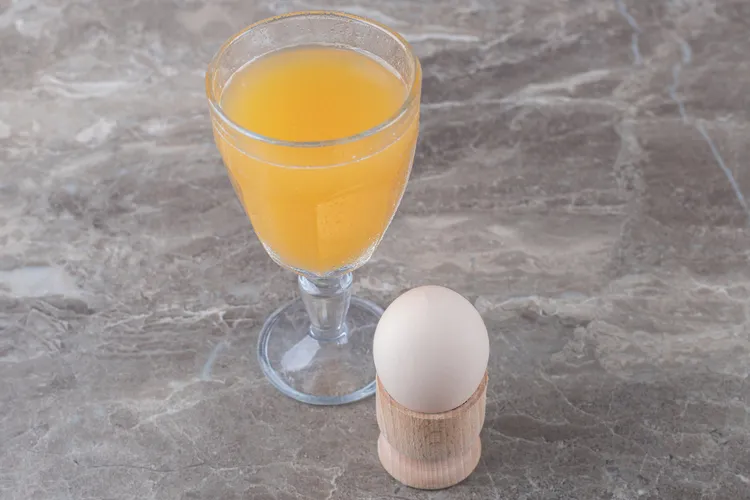Why Water is Essential for a Healthy Lifestyle: The Lifeblood of Wellness
Water is the foundation of life, an unsung hero that sustains every cell, organ, and system in our bodies. Often overlooked in favor of trendy superfoods or supplements, water is the most critical nutrient for maintaining a healthy lifestyle. From regulating body temperature to supporting mental focus, water plays an indispensable role in our physical, mental, and emotional well-being. Let’s raise a glass (of water!) to the elixir of life and uncover why it’s the cornerstone of health.

The Science of Water in Our Bodies
Water makes up about 60% of the human body, with variations depending on age, sex, and body composition. It’s present in every cell, tissue, and organ, serving as a medium for countless biological processes. Here’s a closer look at why water is non-negotiable for our health:
- Cellular Function: Water is the primary component of cells, enabling them to carry out essential functions like nutrient transport, waste removal, and chemical reactions. Without adequate water, cells can’t function optimally, leading to fatigue and impaired performance.
- Temperature Regulation: Water helps regulate body temperature through sweating and respiration. When you’re hot, sweat evaporates from your skin, cooling you down. This process relies on sufficient hydration to work effectively, especially during exercise or in warm climates.
- Joint and Muscle Health: Water lubricates joints, reducing friction and preventing discomfort or injury. It also supports muscle function by maintaining electrolyte balance, which is critical for muscle contractions and preventing cramps.
- Digestion and Nutrient Absorption: Water aids digestion by helping break down food and dissolve nutrients, making them easier for the body to absorb. It also prevents constipation by softening stool and promoting regular bowel movements.
- Detoxification: Your kidneys rely on water to filter waste products from the blood and excrete them through urine. Adequate hydration ensures that toxins are efficiently removed, supporting kidney health and preventing issues like urinary tract infections or kidney stones.
- Circulation and Heart Health: Water maintains blood volume, which is essential for proper circulation and oxygen delivery to tissues. Dehydration can thicken blood, increasing the risk of cardiovascular strain and conditions like high blood pressure.
Water and Physical Performance
Whether you’re an athlete, a casual gym-goer, or simply navigating a busy day, water is your secret weapon for peak performance. Here’s how hydration impacts your physical abilities:
- Exercise Efficiency: Even mild dehydration (a 1-2% loss of body water) can reduce strength, endurance, and coordination. Water supports muscle function by transporting oxygen and nutrients, while also preventing fatigue and overheating during workouts.
- Recovery: After exercise, water helps flush out metabolic waste (like lactic acid) and replenishes fluids lost through sweat. Pairing water with electrolytes can enhance recovery, reducing muscle soreness and improving readiness for the next session.
- Energy Levels: Dehydration can cause sluggishness and fatigue, as it impairs the body’s ability to produce energy. Staying hydrated keeps you alert and energized, whether you’re running a marathon or tackling a workday.
- Weight Management: Water can aid in weight management by promoting satiety. Drinking water before meals may reduce appetite, helping you avoid overeating. Additionally, water has zero calories, making it a perfect replacement for sugary drinks that contribute to weight gain.
Mental and Emotional Benefits of Hydration
Water doesn’t just fuel your body - it also powers your mind. Dehydration can impair cognitive function and mood, while proper hydration supports mental clarity and emotional balance. Here’s why water is a brain booster:
- Cognitive Performance: Studies show that even mild dehydration can impair concentration, memory, and reaction time. Drinking enough water keeps your brain functioning at its best, whether you’re studying, working, or making decisions.
- Mood Regulation: Dehydration is linked to irritability, anxiety, and low mood. By maintaining hydration, you support the production of neurotransmitters like serotonin, which contribute to emotional well-being.
- Stress Management: Chronic dehydration can elevate cortisol levels, the body’s stress hormone. Staying hydrated helps regulate stress responses, keeping you calm and focused under pressure.
- Sleep Quality: Proper hydration supports healthy sleep patterns by aiding in temperature regulation and reducing nighttime disruptions like muscle cramps or dry mouth.
Water and Disease Prevention
Drinking enough water is a proactive way to protect your long-term health. Here’s how hydration helps prevent common health issues:
- Kidney Health: Adequate water intake reduces the risk of kidney stones by diluting minerals that can crystallize in the kidneys. It also lowers the likelihood of urinary tract infections by flushing out bacteria.
- Heart Health: Staying hydrated supports healthy blood pressure and reduces the risk of cardiovascular events. Dehydration can strain the heart, increasing the risk of complications, especially in hot weather or during physical activity.
- Skin Health: Water keeps skin hydrated, improving elasticity and reducing dryness. While it won’t directly prevent wrinkles, proper hydration supports overall skin vitality and a healthy complexion.
- Digestive Health: Water prevents constipation and supports a healthy gut microbiome by aiding in the breakdown and absorption of nutrients.
- Immune Function: Hydration supports the production of lymph, a fluid that carries immune cells throughout the body. Staying hydrated helps your immune system fight off infections more effectively.
How Much Water Do You Need?
The amount of water you need depends on factors like age, activity level, climate, and overall health. A common guideline is the “8x8 rule” (eight 8-ounce glasses, or about 2 liters daily), but this is a starting point. Here’s a more tailored approach:
- General Recommendations:
- Women: About 2.7 liters (91 ounces) per day, including water from food and beverages.
- Men: About 3.7 liters (125 ounces) per day.
- Athletes or Active Individuals: Add 12 ounces of water for every 30 minutes of exercise.
- Hot or Humid Climates: Increase intake to compensate for sweat loss.
- Pregnancy or Breastfeeding: Pregnant women need about 3 liters daily, while breastfeeding women may need up to 3.8 liters.
Keep in mind that water-rich foods (like watermelon, cucumbers, and oranges) and other beverages (like tea or milk) contribute to your daily intake. However, plain water is the gold standard for hydration due to its zero-calorie, additive-free nature.
Signs of Dehydration and How to Avoid It
Dehydration occurs when you lose more water than you take in, and it can range from mild to severe. Common signs include:
- Thirst
- Dry mouth or lips
- Dark yellow urine
- Fatigue or dizziness
- Headache
- Muscle cramps
Severe dehydration may cause confusion, rapid heartbeat, or fainting, requiring immediate medical attention. To avoid dehydration:
- Drink Regularly: Don’t wait until you’re thirsty - sip water throughout the day.
- Monitor Urine Color: Pale yellow urine indicates good hydration; darker urine suggests you need more water.
- Eat Hydrating Foods: Incorporate fruits and vegetables like watermelon, strawberries, lettuce, and zucchini into your diet.
- Use a Reusable Bottle: Keep a water bottle handy to encourage consistent sipping.
Practical Tips for Staying Hydrated
Making water a seamless part of your lifestyle doesn’t have to be complicated. Here are actionable ways to boost your hydration game:
- Infuse Your Water: Add slices of lemon, cucumber, mint, or berries to make water more appealing. Infused water adds flavor without the sugar of sodas or juices.
- Set Reminders: Use apps or set phone alarms to remind you to drink water throughout the day.
- Carry a Stylish Bottle: Invest in a reusable water bottle that reflects your personality - whether it’s sleek stainless steel or a colorful design. Many bottles have measurement markers to track your intake.
- Pair with Routines: Drink a glass of water first thing in the morning, before meals, or during breaks to build a habit.
- Swap Sugary Drinks: Replace sodas, energy drinks, or excessive coffee with water to cut calories and improve hydration.
- Eat Water-Rich Foods: Snack on hydrating foods like watermelon, oranges, celery, or yogurt to supplement your fluid intake.
- Electrolyte Balance: For intense exercise or hot weather, consider electrolyte-enhanced water or natural options like coconut water to replenish sodium and potassium.
The Environmental Connection: Water and Sustainability
Drinking water responsibly also means considering its environmental impact. Here’s how to align your hydration habits with sustainability:
- Choose Tap or Filtered Water: Bottled water generates plastic waste, contributing to pollution. Use a home filtration system or a reusable bottle to reduce your environmental footprint.
- Support Local Water Systems: Advocate for clean, safe tap water in your community to reduce reliance on bottled water.
- Conserve Water: Be mindful of water usage in daily life - fix leaks, take shorter showers, and support water conservation initiatives.
By prioritizing sustainable water consumption, you contribute to both personal health and global environmental health.
Water as the Foundation of a Healthy Lifestyle
Water is more than a beverage - it’s the lifeblood of a healthy lifestyle. From powering your cells to boosting your brain, water is the unsung hero that keeps you thriving. By prioritizing hydration, you invest in your physical performance, mental clarity, and long-term health. Whether you’re sipping from a reusable bottle, enjoying a water-rich fruit like watermelon, or advocating for clean water access, every drop counts.
Make water your go-to drink, and watch how it transforms your energy, mood, and vitality. Let’s commit to staying hydrated, not just for ourselves but for a healthier, more sustainable world.









